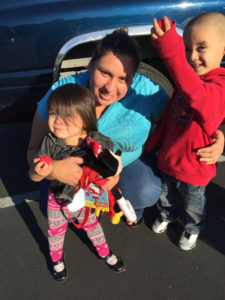Witness
About Witness
We engage in witness when we experience the world alongside people different from ourselves. Witness is the foundational practice of Fools Mission , and played a pivotal role in our beginnings as an organization.
Witness is an essential part of all of our programs: Accompaniment, Participatory Defense, Theater of the Oppressed, and our Rapid Response teams.
The value of witness
Witness can mean many things: gaining knowledge through personal experience; testifying about your personal experience and your truth; or simply a practical matter of seeing and saying the truth about things that happen in the world. At Fools Mission it can mean any or all of those things.
 We value direct experience of people’s lives more than assertion, advice, or judgment. We trust that every conscious observation, thought, or gesture changes the world—beginning with ourselves. To make a difference in a single life is, for us, the embodiment of the reward that we seek; and our lingua franca is kindness.
We value direct experience of people’s lives more than assertion, advice, or judgment. We trust that every conscious observation, thought, or gesture changes the world—beginning with ourselves. To make a difference in a single life is, for us, the embodiment of the reward that we seek; and our lingua franca is kindness.
We engage in witness when we accompany people as they interact with the bureaucracy of American society: in court, at the DMV, at their child’s school, in health care settings, and more places where procedures and forms often seem to take precedence over human needs.
Witness and the founding of Fools Mission
Fools Mission had learned and benefited from years of association with an organization in San Francisco called the Faithful Fools Street Ministry, but we really began with an immigration story. In 2009, co-founder Thomas Atwood accompanied a mother of six kids through a harrowing deportation process that threatened to tear her family apart.
A few months earlier, the father had been detained by Immigration and Customs Enforcement (ICE) as he was leaving for work. His subsequent deportation left the family without their breadwinner. As they took him away, the ICE officers told the mom that if she turned herself in, it might prevent him from being deported. This turned out to be false, but she heeded their advice — and before the day was out, she was caught up in deportation proceedings of her own.
Within a few weeks, the family had been evicted from the house they were renting in San Mateo, California. Now homeless, they spent four months in shelter housing as they gathered the resources to stabilize the family and move into an apartment.
Mr. Atwood was present for her hearings at the immigration court in San Francisco, along with family, clergy, and friends. A reporter from the San Jose Mercury News, Ken McLaughlin, was also present, scribbling furiously in a notebook. In the lobby, his partner Dai Sugano awaited opportunities to capture the family’s struggle to survive on video.
The mom identified Atwood in open court as “my brother,” which broke open his heart to a new kind of familial relationship. To this day, they are hermano and hermana — and after winning her case, the video documentary about it, Torn Apart, became one of the top Mercury News stories of 2010. You can watch the video here.
During the course of the proceedings, the incipient Fools Mission community received a street-level education about how deportation destroys families. To this day, the family credits our accompaniment with providing resources and companionship that they needed to survive this traumatic experience; and the mom has provided invaluable service to Fools Mission as a founding member.
